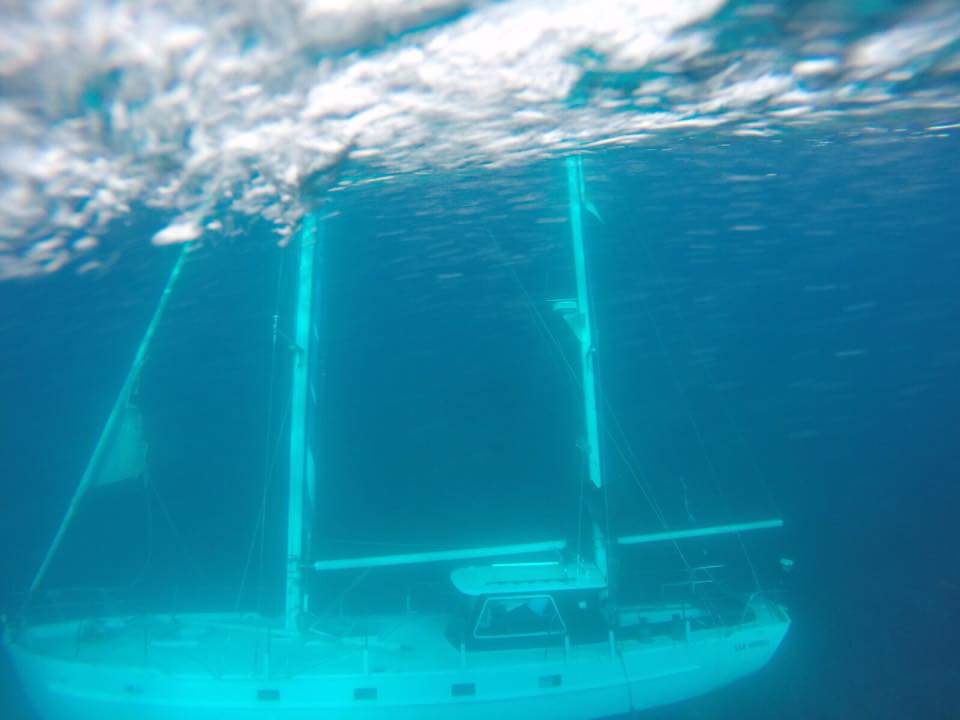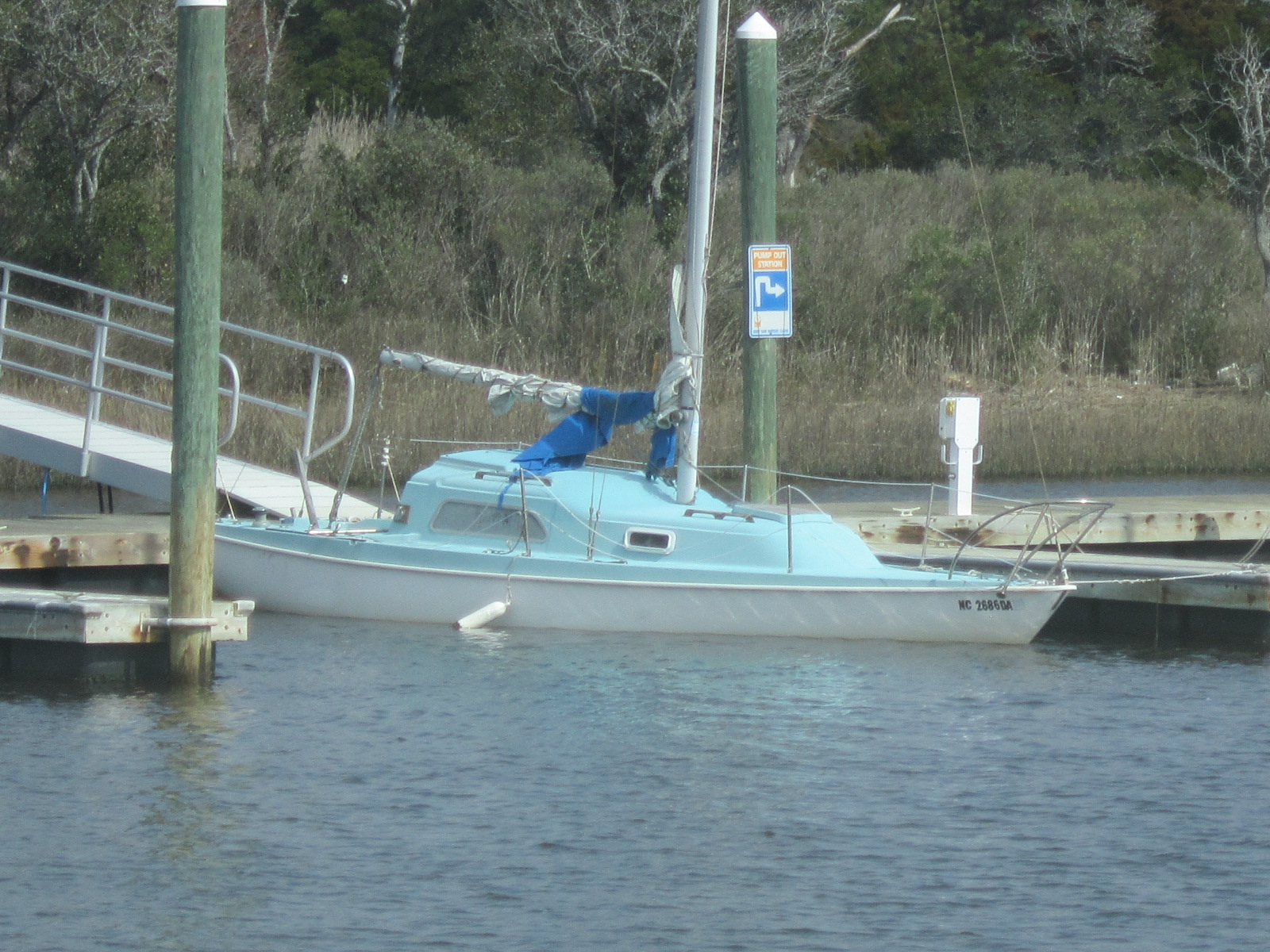When a hurricane hits, it doesn't just bring chaos to the land—it wreaks havoc on everything in its path, including boats. If you're a boat owner, the damage caused by a hurricane can feel overwhelming. But don’t panic yet—there are steps you can take to recover, repair, and even prevent future damage.
Picture this: you’ve spent years building your dream boat or investing in a vessel that’s perfect for your weekend adventures. Then comes a hurricane, and suddenly, your prized possession is battered, bruised, and possibly even sinking. It’s not just about the emotional attachment—it’s also a significant financial hit. So, how do you navigate through this storm of repairs and recovery?
This article dives deep into the world of hurricane-damaged boats, offering practical advice, expert tips, and actionable strategies to help you get back on the water. Whether you're dealing with minor scratches or major structural damage, we’ve got you covered.
Read also:Unveiling The Ages Of Iconic Rock Legends How Old Are Members Of The Rolling Stones
Table of Contents
- Understanding Hurricane Damaged Boats
- The Science Behind Hurricanes and Boats
- Types of Damage Caused by Hurricanes
- Assessing the Damage
- Navigating Insurance Claims
- The Boat Repair Process
- Preventing Future Damage
- Understanding the Costs Involved
- Useful Resources for Boat Owners
- Wrapping It All Up
Understanding Hurricane Damaged Boats
Hurricanes are no joke, and when they make landfall, they bring with them a whole lot of trouble for boat owners. A hurricane-damaged boat isn't just a cosmetic issue—it can be a serious threat to your investment. From broken hulls to flooded engines, the damage can range from minor to catastrophic.
So, what exactly happens to a boat during a hurricane? Well, it all depends on the severity of the storm and the precautions you’ve taken beforehand. High winds, storm surges, and flying debris can all contribute to the destruction of your vessel. It’s not just about the wind either; water levels can rise dramatically, causing boats to be submerged or even swept away.
Why Hurricanes Are So Dangerous for Boats
Hurricanes are like nature’s bulldozers, and they don’t discriminate between land and sea. Here’s why they’re particularly dangerous for boats:
- Wind Speeds: Hurricanes can generate winds of over 75 mph, which can easily capsize or break apart a boat.
- Storm Surges: The rise in water levels caused by a hurricane can flood marinas and damage boats that are moored or docked.
- Flying Debris: Objects like tree branches, roofing materials, and even other boats can become projectiles during a storm, causing significant damage.
It’s not just about the physical damage either; hurricanes can also cause electrical issues, fuel contamination, and other unseen problems that might not be apparent at first glance.
The Science Behind Hurricanes and Boats
Let’s take a quick dive into the science of hurricanes and how they affect boats. Hurricanes are powerful weather systems that form over warm ocean waters. They draw their energy from the heat released when moist air rises and condenses. As the storm moves, it generates powerful winds and heavy rainfall, which can have devastating effects on anything in its path.
For boats, the combination of wind and water is particularly problematic. The wind can exert immense pressure on the hull, causing it to crack or even break apart. Meanwhile, the water can rise rapidly, flooding the engine and electrical systems. It’s a recipe for disaster if you’re not prepared.
Read also:Movierulz Ullu Latest Movies Web Series A Comprehensive Guide
Key Factors That Influence Damage
Several factors determine how much damage a hurricane will cause to a boat:
- Location: Boats moored in open water or poorly protected harbors are more vulnerable.
- Preparation: Boats that have been properly secured or moved to safer locations are less likely to suffer severe damage.
- Boat Type: Larger, heavier boats tend to fare better than smaller, lighter ones.
Understanding these factors can help you take the right steps to protect your boat before a hurricane strikes.
Types of Damage Caused by Hurricanes
When a hurricane damages a boat, the problems can vary from cosmetic to structural. Let’s break down the most common types of damage you might encounter:
- Hull Damage: Cracks, dents, or even complete breaches in the hull can compromise the boat’s integrity.
- Engine Issues: Water ingress can cause serious problems for the engine, including rust, corrosion, and fuel contamination.
- Electrical Failures: Flooded electrical systems can lead to short circuits, blown fuses, and other issues.
- Deck and Cabin Damage: Flying debris can shatter windows, tear awnings, and damage the deck.
Each type of damage requires a different approach to repair, so it’s important to assess the situation carefully before starting any work.
Minor vs Major Damage
Not all hurricane damage is created equal. Minor damage might include scratches, dings, or small leaks, while major damage could involve a completely flooded engine or a shattered hull. Knowing the difference can help you prioritize repairs and allocate resources effectively.
Assessing the Damage
After a hurricane, the first step is to assess the damage to your boat. This might seem daunting, but it’s crucial for determining the next steps. Here’s how you can go about it:
Step 1: Inspect the exterior for visible damage like cracks, dents, and broken windows.
Step 2: Check the interior for water ingress, mold, and electrical issues.
Step 3: Look under the hood to see if the engine has been affected by water or debris.
Remember, safety first! If the damage seems extensive, it’s best to call in a professional to avoid further complications.
DIY Assessment Tips
If you’re handy with tools, here are some tips for assessing hurricane damage yourself:
- Use a flashlight to check dark corners for water stains or mold.
- Tap on the hull to listen for hollow sounds that might indicate internal damage.
- Inspect the bilge pump to ensure it’s functioning properly.
While DIY assessments can save you money, they’re not always foolproof. For serious issues, it’s always better to consult an expert.
Navigating Insurance Claims
Insurance is your best friend when it comes to hurricane-damaged boats. Most boat insurance policies cover damage caused by natural disasters, but there are a few things you need to keep in mind:
Read the Fine Print: Make sure you understand what your policy covers and what it doesn’t. Some policies might exclude certain types of damage or require specific precautions to be taken.
Document Everything: Take plenty of photos and videos of the damage before starting any repairs. This will help support your claim.
File Promptly: Don’t delay in filing your claim—most insurance companies have strict deadlines for reporting damage.
Insurance can be a lifesaver, but it’s not always a straightforward process. Be prepared to provide detailed information and documentation to support your claim.
Common Insurance Pitfalls
Here are a few common mistakes to avoid when filing an insurance claim for a hurricane-damaged boat:
- Waiting too long to file your claim.
- Not documenting the damage properly.
- Starting repairs without approval from the insurance company.
By avoiding these pitfalls, you can ensure a smoother claims process and get the compensation you deserve.
The Boat Repair Process
Once you’ve assessed the damage and filed your insurance claim, it’s time to start the repair process. This can be a lengthy and expensive undertaking, but with the right approach, you can get your boat back in shape.
Step 1: Hire a qualified marine surveyor to evaluate the damage and provide an estimate for repairs.
Step 2: Choose a reputable repair shop or contractor to handle the work.
Step 3: Monitor the progress closely to ensure the job is done right.
Repairs can range from simple fixes like replacing windows to major overhauls like rebuilding the hull. The key is to work with professionals who understand the unique challenges of repairing hurricane-damaged boats.
Cost Considerations
Repair costs can vary widely depending on the extent of the damage. Here’s a rough breakdown:
- Minor repairs: $500 - $2,000
- Moderate repairs: $2,000 - $10,000
- Major repairs: $10,000+
Keep in mind that these are just estimates, and actual costs can vary based on location, materials, and labor rates.
Preventing Future Damage
While you can’t stop hurricanes from happening, you can take steps to minimize the damage they cause to your boat. Here are some prevention tips:
- Secure Your Boat: Use heavy-duty mooring lines and anchors to keep your boat in place during a storm.
- Move to Safer Locations: If possible, move your boat to a hurricane-safe harbor or dry dock before the storm hits.
- Cover and Protect: Use tarps and other protective covers to shield your boat from debris and flying objects.
Prevention is key when it comes to protecting your boat from hurricane damage. By taking these steps, you can significantly reduce the risk of serious harm to your vessel.
Investing in Prevention
While prevention might seem like an added expense, it’s a worthwhile investment in the long run. Consider upgrading your mooring equipment, installing storm shutters, or investing in a hurricane-proof storage facility. These measures can save you thousands in repair costs down the line.
Understanding the Costs Involved
Repairing a hurricane-damaged boat can be costly, but understanding the costs involved can help you plan and budget accordingly. Here’s a breakdown of the typical expenses you might encounter:
- Marine Surveyor Fees: $500 - $1,500
- Repair Shop Labor: $50 - $150 per hour
- Parts and Materials: Varies depending on the damage
It’s important to get multiple quotes before proceeding with repairs to ensure you’re getting a fair price. Don’t be afraid to negotiate or seek second opinions if something seems off.
Financing Options
If the repair costs are beyond your budget, there are financing options available. Many banks and credit unions offer loans specifically for boat repairs, and some insurance companies may provide advance payments to help cover immediate expenses.
Useful Resources for Boat Owners
Here are some resources that can help you navigate the world of hurricane-damaged boats:
- NOAA Hurricane Center: Stay informed about incoming storms and their potential impact on your area.
- BoatUS: Offers valuable resources for boat owners, including insurance and repair services.
- US Coast Guard: Provides safety guidelines and emergency assistance for boat owners.
Utilizing these resources can help you stay prepared and informed, making the recovery process smoother and more efficient.
Wrapping It All Up
Hurricane-damaged boats can be a major headache, but with the right approach, you can recover and get back on the water. From assessing the damage to navigating insurance claims and repairing your vessel, there are plenty of steps you can take to minimize


